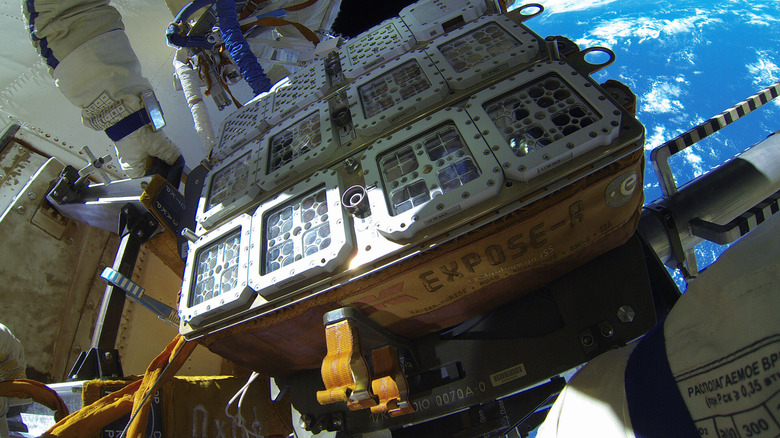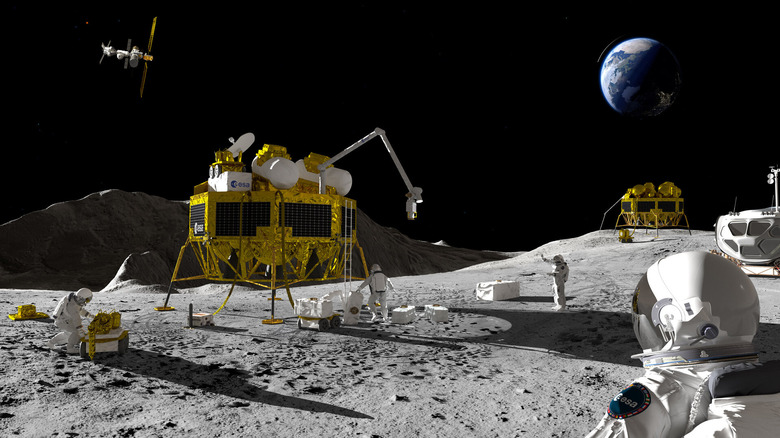Why Kombucha Could Be The Key To Healthy Astronauts In Space
You might know kombucha as a trendy coffee shop order, but the fermented sugary tea drink could have uses far beyond the terrestrial. Researchers are investigating whether kombucha cultures can survive in space and whether they could help astronauts stay healthy on long-duration space missions to the moon or Mars.
The European Space Agency (ESA) is performing the research on groups of cells called biofilms which are found in kombucha and are known to be able to survive in harsh conditions. The aim is to see whether these biofilms could survive in space as well, or even in simulated conditions similar to Mars. At the ESA Expose facility, which is mounted to the outside of the International Space Station, various species of bacteria, fungi, and arthropods are kept in containers for periods of 18 months to see how they fare in the space environment.
It is cold, with temperatures as low as about 10 degrees Fahrenheit when the station is in shadow and up to 104 degrees Fahrenheit when the sun strikes it — and it's also in the vacuum of space and is bombarded by space radiation, too. These tough conditions weren't a problem for a type of microorganism called a cyanobacterium, however, which managed to survive and even repair its DNA and continue cell division after it was damaged by space radiation. "The cultures show great potential in supporting long-term human presence on the moon and on Mars," said the head of the German Aerospace Center's astrobiology group, Petra Rettberg, via the ESA.
The value of microorganisms for human missions
Investigating the resilience of kombucha organisms isn't so that astronauts can have something tasty to drink — although that could be a possibility — but rather to understand how those astronauts can be protected from the space environment. On Earth, our planet's magnetic field protects us from space radiation, but when astronauts leave Earth's protective magnetosphere to travel to locations like the moon and Mars, they will face potentially dangerous levels of radiation. A lot of research is focused on how to protect astronauts from this radiation, so studying resilient microorganisms like those found in kombucha could help with this.
Scientists are particularly interested in how tissues regenerate after damage, and how this is related to cell division. Understanding this could help engineer protective technologies, perhaps even using biological materials as a shield for long-duration space missions. And once humans have set up a long-term base around the moon, like NASA's planned lunar Gateway space station, cultivating microorganisms could be helpful for everything from creating required resources like oxygen to protecting astronaut health to creating electricity to growing food and processing waste.
"Due to their ability to produce oxygen and function as bio-factories, this biotechnology could significantly enhance future space missions and human space exploration efforts," said ESA deep space exploration scientist Nicol Caplin. "I hope to see our samples attached to the lunar Gateway in the future or perhaps utilized on the surface of the moon and beyond. Until then, we will continue to explore the possibilities our bio-cultures offer."

